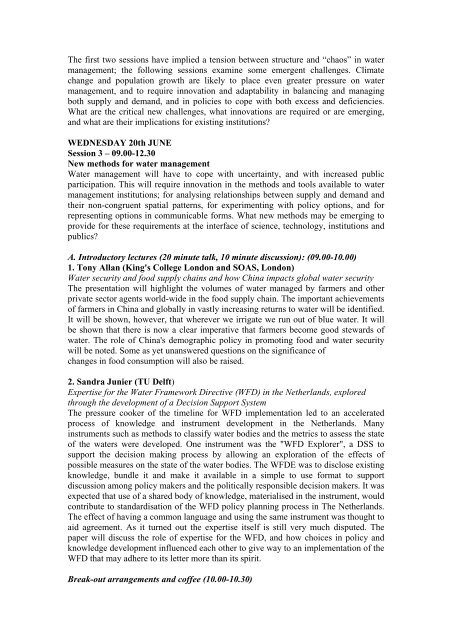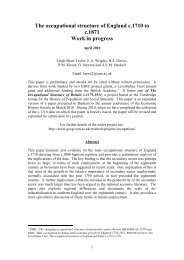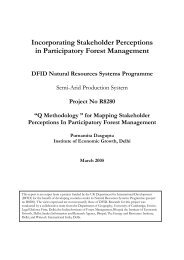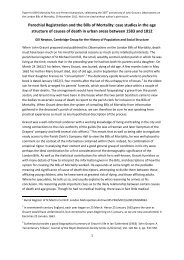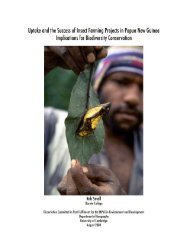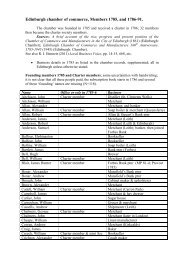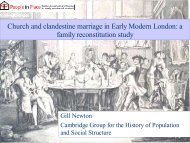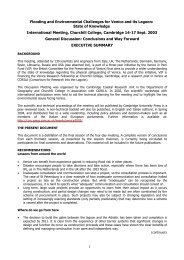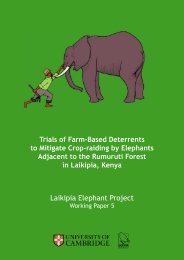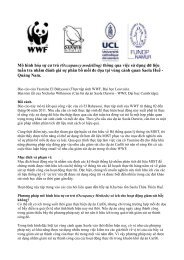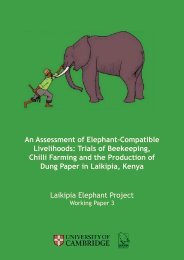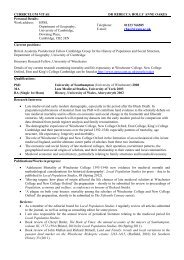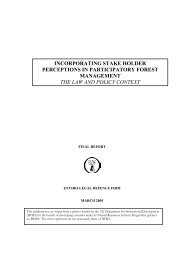Workshop booklet including programme and participant list
Workshop booklet including programme and participant list
Workshop booklet including programme and participant list
Create successful ePaper yourself
Turn your PDF publications into a flip-book with our unique Google optimized e-Paper software.
The first two sessions have implied a tension between structure <strong>and</strong> “chaos” in water<br />
management; the following sessions examine some emergent challenges. Climate<br />
change <strong>and</strong> population growth are likely to place even greater pressure on water<br />
management, <strong>and</strong> to require innovation <strong>and</strong> adaptability in balancing <strong>and</strong> managing<br />
both supply <strong>and</strong> dem<strong>and</strong>, <strong>and</strong> in policies to cope with both excess <strong>and</strong> deficiencies.<br />
What are the critical new challenges, what innovations are required or are emerging,<br />
<strong>and</strong> what are their implications for existing institutions?<br />
WEDNESDAY 20th JUNE<br />
Session 3 – 09.00-12.30<br />
New methods for water management<br />
Water management will have to cope with uncertainty, <strong>and</strong> with increased public<br />
participation. This will require innovation in the methods <strong>and</strong> tools available to water<br />
management institutions; for analysing relationships between supply <strong>and</strong> dem<strong>and</strong> <strong>and</strong><br />
their non-congruent spatial patterns, for experimenting with policy options, <strong>and</strong> for<br />
representing options in communicable forms. What new methods may be emerging to<br />
provide for these requirements at the interface of science, technology, institutions <strong>and</strong><br />
publics?<br />
A. Introductory lectures (20 minute talk, 10 minute discussion): (09.00-10.00)<br />
1. Tony Allan (King's College London <strong>and</strong> SOAS, London)<br />
Water security <strong>and</strong> food supply chains <strong>and</strong> how China impacts global water security<br />
The presentation will highlight the volumes of water managed by farmers <strong>and</strong> other<br />
private sector agents world-wide in the food supply chain. The important achievements<br />
of farmers in China <strong>and</strong> globally in vastly increasing returns to water will be identified.<br />
It will be shown, however, that wherever we irrigate we run out of blue water. It will<br />
be shown that there is now a clear imperative that farmers become good stewards of<br />
water. The role of China's demographic policy in promoting food <strong>and</strong> water security<br />
will be noted. Some as yet unanswered questions on the significance of<br />
changes in food consumption will also be raised.<br />
2. S<strong>and</strong>ra Junier (TU Delft)<br />
Expertise for the Water Framework Directive (WFD) in the Netherl<strong>and</strong>s, explored<br />
through the development of a Decision Support System<br />
The pressure cooker of the timeline for WFD implementation led to an accelerated<br />
process of knowledge <strong>and</strong> instrument development in the Netherl<strong>and</strong>s. Many<br />
instruments such as methods to classify water bodies <strong>and</strong> the metrics to assess the state<br />
of the waters were developed. One instrument was the "WFD Explorer", a DSS to<br />
support the decision making process by allowing an exploration of the effects of<br />
possible measures on the state of the water bodies. The WFDE was to disclose existing<br />
knowledge, bundle it <strong>and</strong> make it available in a simple to use format to support<br />
discussion among policy makers <strong>and</strong> the politically responsible decision makers. It was<br />
expected that use of a shared body of knowledge, materialised in the instrument, would<br />
contribute to st<strong>and</strong>ardisation of the WFD policy planning process in The Netherl<strong>and</strong>s.<br />
The effect of having a common language <strong>and</strong> using the same instrument was thought to<br />
aid agreement. As it turned out the expertise itself is still very much disputed. The<br />
paper will discuss the role of expertise for the WFD, <strong>and</strong> how choices in policy <strong>and</strong><br />
knowledge development influenced each other to give way to an implementation of the<br />
WFD that may adhere to its letter more than its spirit.<br />
Break-out arrangements <strong>and</strong> coffee (10.00-10.30)


